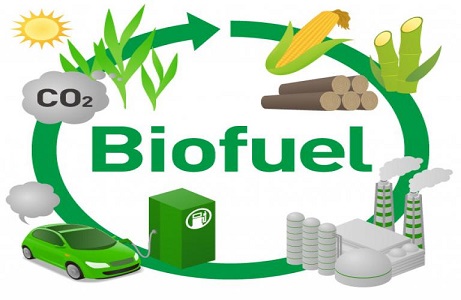Updated By: LatestGKGS Desk
National Policy on Biofuels 2018: Details, Features, Aim, Purpose, Benefits

National Policy on Biofuels 2018: Details, Features, Aim, Purpose, Benefits
National Policy on Biofuels was made by the Union Ministry of New and Renewable Energy during the year 2009. It focuses to promote biofuels in India.
National Policy on Biofuels categorizes biofuels into the first generation (1G), second generation (2G) and third-generation (3G) to enable the extension of appropriate financial and fiscal incentives under each category.
National Policy on Biofuels aims to help farmers dispose of their surplus stock in an economic manner and reduce country’s oil import dependence.
National Policy on Biofuels has expanded the scope of raw material for ethanol production by allowing the use of sugarcane juice, sugar-containing materials like sweet sorghum, sugar beet, starch-containing materials like corn, cassava, damaged food grains like broken rice, wheat, rotten potatoes, unfit for human consumption for ethanol production.
National Policy on Biofuels also encourages setting up of supply chain mechanisms for biodiesel production from non-edible oilseeds, used cooking oil, short gestation crops.
National Policy on Biofuels benefits include Reduce Import Dependency; Cleaner Environment; Health benefits; MSW Management; Infrastructural Investment in Rural Areas; Employment Generation and Additional Income to Farmers.


